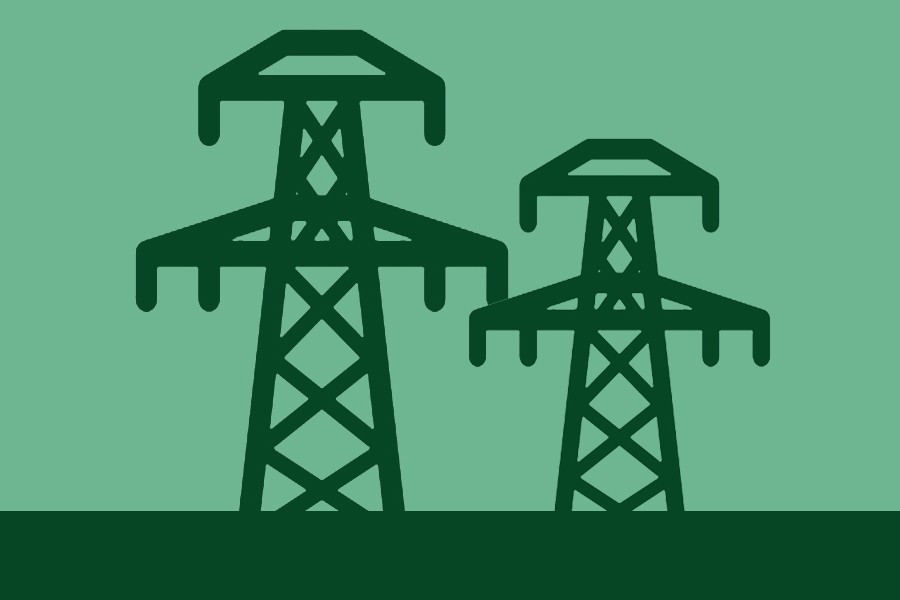Speakers on Saturday stressed long-term planning over a stable tariff structure for both electricity and naturals gas to help investors plan potential and investment plans.
Otherwise, the country’s business people and potential investors will not be interested to make investment plans seeing the uncertainty or instability in power and energy tariffs, they said.
Speakers came up with the comments at a webinar organised by Forum for Energy Reporters Bangladesh (FERB), titled ‘Electricity Demand in Bangladesh: Installed and Supply Capacity.’
Prime Minister’s Principal Secretary Dr Ahmad Kaikaus was the chief guest at the webinar.
Energy expert professor M Tamim delivered the keynote presentation at the event.
Speaking on the occasion Dr Kaukaus said the government is planning to suspend future parallel gas network expansion plans due to economic reasons.
“We have already reached 99.5 per cent coverage of electricity across the country so the parallel penetration of natural gas network will not be required require considering huge investment costs against return,” he said.
Dr Kaukaus said the country’s future development will depend on the expansion of a robust network of electricity.
The country’s natural gas should be used mainly for power generation instead of expanding its supply to industries and for other uses.
If gas is used for power generation with the highest efficiency, it can meet the energy requirement without investment in pipeline installation to provide the energy to the industries, said Mr Kaikaus.
He called upon power division for improving efficiency in the power sector to keep tariffs rational.
Dr Kaikaus said the demand for electricity in rural areas raised significantly compared to urban areas during the lockdown.
He also said the government is not worried about the surplus capacity of electricity as its proper utilisation will boost up the economy.
Mr Kaikaus also asked the concerned authorities to review the cost of electricity generation as it is much higher than captive power generation.
“Why the electricity generation costs in captive power plants cost only Tk 4.5 per unit (1 kilowatt hour) despite the natural gas cost is Tk 14 per unit whereas the public power generation costs an average of Tk 8 per unit despite the fact that it receives natural gas at only Tk 5 per unit ?” he questioned.
In his keynote presentation, Mr Tamim said that Bangladesh should prepare short-term and long-term roadmaps for its power sector keeping in mind the global commitment for zero emission by 2050, when power will be generated from renewable sources.
“Until 2050, gas could be used as a transition fuel for power generation as it is the cheapest primary energy”, he said.
Mr Tamim also opined emphasising the promotion of renewable energy as new technologies are coming up to reduce the cost of rooftop solar and other options.
Power Secretary Md Habibur Rahman said Bangladesh has shared its proposal on regional energy exchange at the SAARC energy related meeting in Afghanistan.
“It will be a win-win proposition if the regional power and energy sharing concept is materialised”, he said.
Mr Rahman also said under the proposed arrangement all countries could be benefited.
“Bangladesh can easily export its surplus electricity for the winter season while it can import for summer under the mechanism,” he added.
Mohammad Hossain said captive power generation has been creating discrimination in the power sector by receiving benefits from their lower gas value.
He said if 100 million cubic feet per day (mmcfd) gas is diverted from captive power to grid power generation, it will be an effective option for addressing the current phenomenon of surplus power.
Belayet Hossain said it is time to get out the costly power generation of the private sector.
President of Bangladesh Independent Power Producers Association (BIPPA) Imran Karim said the private sector can convert their HFO-based power generation into gas-fired power generation by introducing new technology to reduce the generation cost.
He said the industries will not shift to grid power if the government does not ensure low cost power.
FERB Chairman Arun Karmaker presided over the seminar while the organisation’s executive director Shamim Jahangir conducted it.
Chairman of state-run Bangladesh Rural Electrification Board (BREB) Moin Uddin, Managing Director of Power Grid Company of Bangladesh (PGCB) Golam Kibria, Managing Director of Dhaka Power Distribution Company (DPDC) Ltd Bikash Dewan and Managing Director of Dhaka Electric Supply Company (DESCO) Kausar Ameer Ali also spoke on the occasion.


